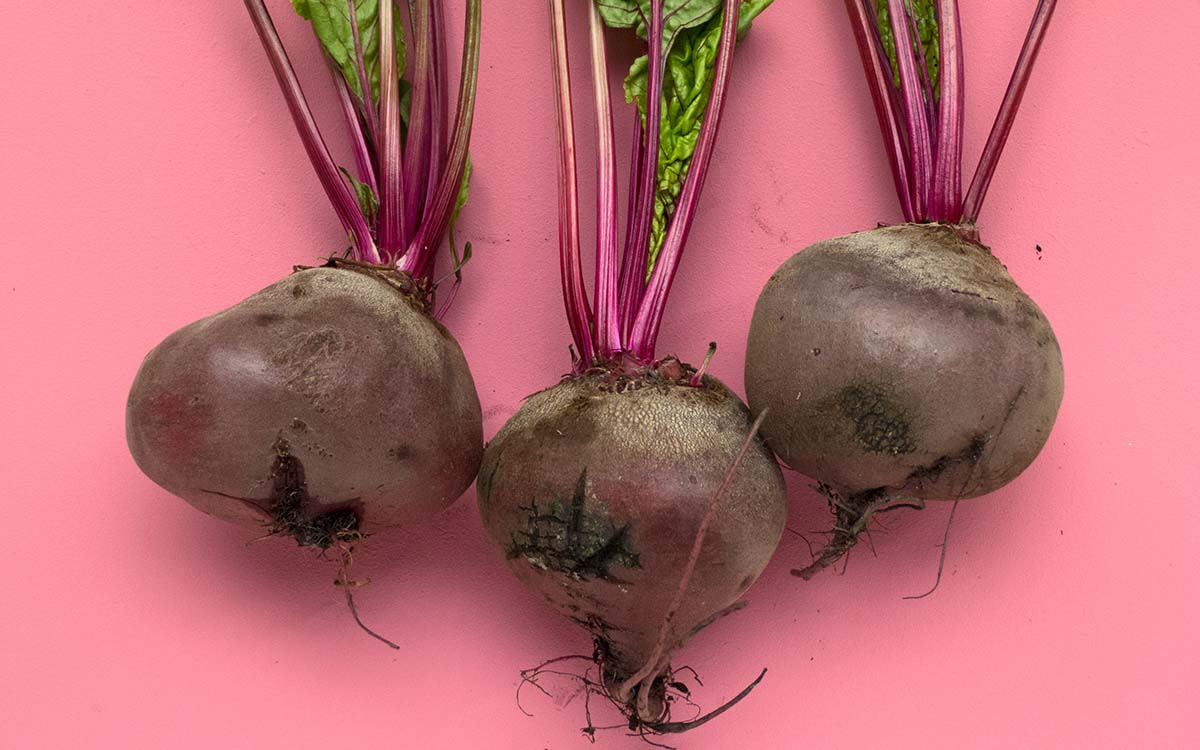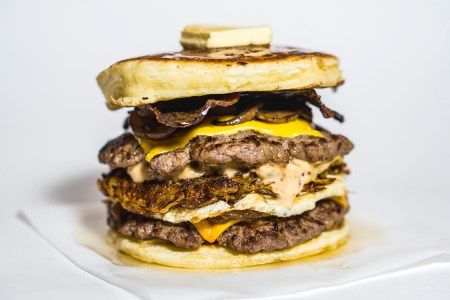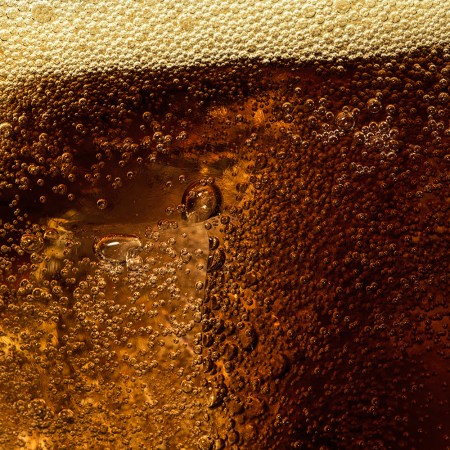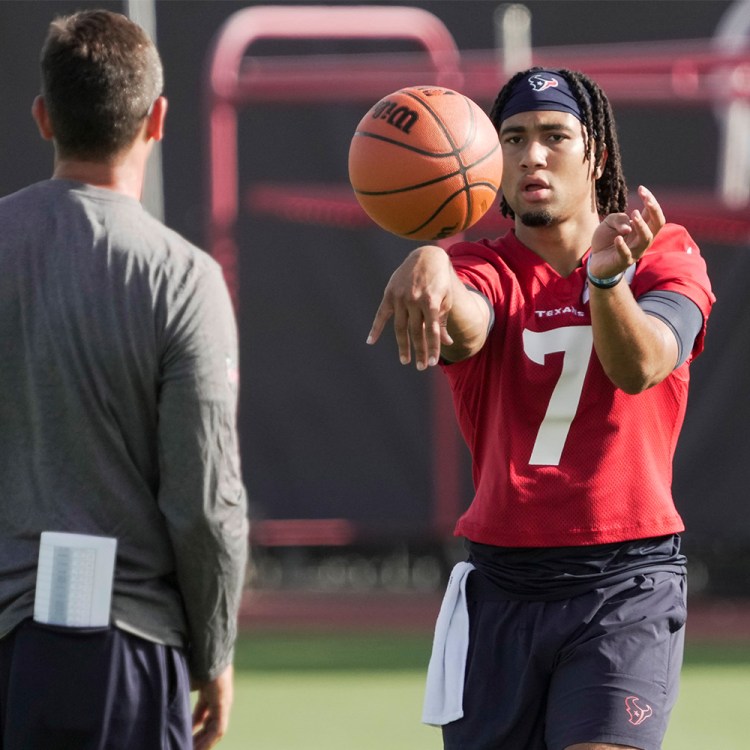Kumail Nanjiani’s physical transformation ahead of the 2021 blockbuster Eternals might be Marvel’s magnum opus….even beating out the ballyhooed evolution of Chris Pratt.
The unlikeliest of Men’s Health cover stars just a few years prior, Nanjiani was suddenly pulling off convincing Wolverine-tribute photoshoots, talking about intermittent fasting and bringing a wry sense of transparency to discussions on Hollywood physiques. (At one point, he took to Instagram to confess that without tremendous resources and unlimited hours each day to focus on his body, he never would have had a shot at getting this chiseled, anyway.)
That said, as with any highly public, highly successful fitness overhaul, nine-to-fivers are rightfully curious to wonder if there’s anything Nanjiani learned that can fit into their own personal wellness routines.
Here’s one nugget we latched onto: when Men’s Health visited Nanjiani’s house for an episode of “Gym & Fridge” (similar to those Architectural Digest videos, but for health), the actor said, “I drink a lot of beet juice. I use beet juice as a pre-workout … I think it gives me energy for the workout. I’ve read that it does. Even if it’s psychosomatic it doesn’t matter. If I think it’s happening, it’s happening.”
Are Cheat Meals a Farce? We Asked a Nutritionist.
The Rock is famous for his #CheatMealSundays. But how bad are they for the average joe?Is Beet Juice Legit?
Beet juice? Really? Well, Nanjiani’s onto something: it does indeed provide pre-workout energy. What’s fascinating here, though, is what the actor has been deploying it for. In the vegetable’s short, unheralded history as a fitness supplement, it’s often been leveraged for endurance activities.
The editor in chief at Wired, Nicholas Thompson, wrote a searing essay a few years back about optimizing his marathon training as he’s gotten older, and matter-of-factly reported drinking the juice on his way to a PR: “I had the oxygen consumption rate of my blood tested at Nike’s lab in Portland. I drank beet juice every morning because studies have shown that high-nitrate foods can boost cardiovascular endurance. I started to log every workout publicly in Strava. In October of that year, I crossed the finish line in Chicago in 2:38, my best time ever.”
Nanjiani spent his 2019 putting on gains, not training for 26.2-mile runs. But studies have shown over the last decade that consistent beet juice consumption is an effective additive for any brand of workout regimen.
Back in 2010, an English long-distance runner named Chris Carver credited a week spent drinking beetroot juice with helping him win an ultra-marathon in Scotland. (The race was to run as possible in 24 hours, and Carver ran 148 miles — eight more miles than the year before, when he didn’t drink any beet juice.) At the time, Carver cited a study from Exeter Univeristy that focused precisely on aerobic activity, and assessed the relationship between beetroot-juice ingestion, prolonged intense activity and a rise in oxygen uptake.
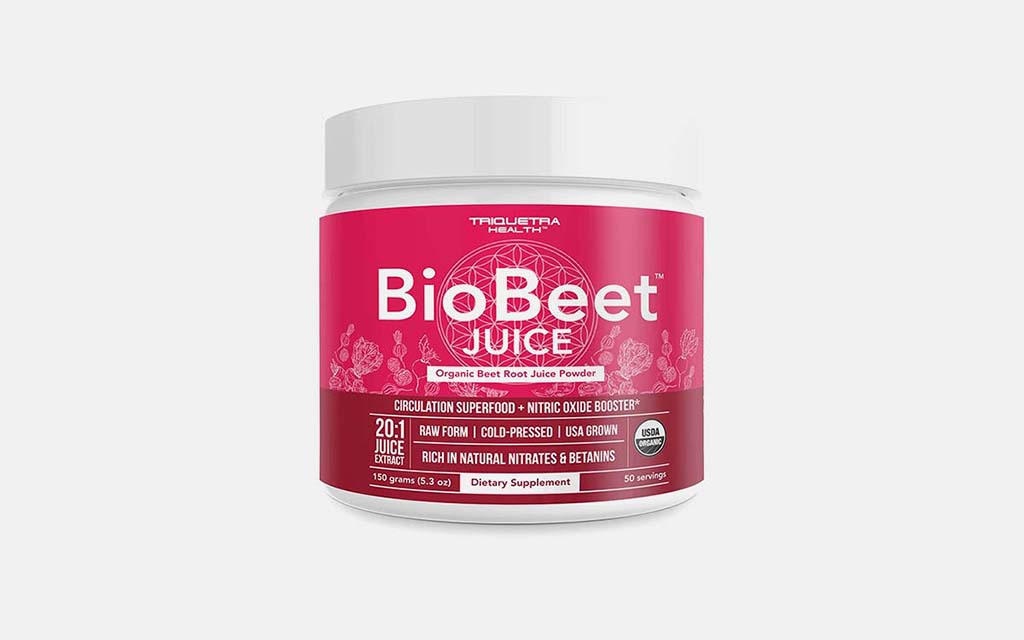
An Endurance Darling
How does it work? In simple terms: drinking beetroot juice lowers your blood pressure and makes it easier for your heart to pump blood around the body.
That’s thanks to the vegetable’s high prevalence of nitrates, which are metabolized in the body into nitric oxide, which induces vasodilation in blood vessels. As more oxygen is fed to hard-working muscles, the muscles are able to contract with more strength over longer periods of time, which can aid in athletic performance. (The opposite process is called vasoconstriction; for an idea of how that would work, just imagine eating deli meat and a bag of chips before a run.) To be clear, nitrates aren’t unique to beets — fruits and veggies from artichokes to watermelons all have ’em, and celery, lettuce and spinach all have comparable levels.
But research thus far has largely centered around the red beetroot. The cycling world, ever game for ergogenic supplementation, has run several different studies over the years on beet ingestion. In 2013, research published in the Journal of Applied Physiology found that riders used 3% less oxygen to pedal the same pace as competitors while racing with the help of beet juice. Cyclists responded in kind, and began fueling training sessions with beets, until a study of triathletes’ ventilatory thresholds revealed triathletes dosing with the juice did not improve time trials with the help of the juice.
But in April 2019, yet another study was released, this time explaining that the beet boost is just more difficult to attain for high-performing athletes. Triathletes certainly fit the bill there — since their hearts already pump blood more efficiently than 99.99% of the world, they need to consume far more beetroot extract if they want to reap the rewards.
But Perfect for HIIT, Too
Back to Nanjiani: there aren’t yet any conclusive scientific studies on the relationship between nitric oxide supplements and muscle growth. But that doesn’t necessarily mean beets haven’t played some small role in his transformation.
The Rock notwithstanding, cinematic bodies have trended leaner this century, favoring functional movements, HIIT sessions and clean kitchens. Nanjiani’s reported routine favors strength-training circuits in the 7- to 15-rep range; over a good chunk of time in the gym, it’s reasonable to imagine consistent beet-juice consumption helping his effort along. And the keyword there is consistent: Nanjiani points out that even on days he’s fasting, he never misses his glass of beet juice. Studies have indicated that the superfood’s superpowers work best when ingested over long periods of time, like two weeks or more.
The Secret’s Out
It’s quite the come-up, then, for a vegetable that already had a lot going for it. Everyday sliced beets are high in fiber, low in calories and rich in potassium, magnesium, iron and manganese.
They’re tough to eat in copious amounts, though: J.J. Redick, a proud beetnik, explained the struggle to GQ earlier this year. The best way forward is to either drink beet juice in by the bottle, as Nanjiani does (in that Men’s Health video, Lakewood Organic PURE Beet Juice appears to be his preferred brand) or turn to a a health supplement company, which have begun to package dehydrated beet juice power with the potency of more than two full beets per serving. You just mix it in a glass of water and throw it back. Reputable brands in the space include BioBeet Juice (which we’ve tested out over the last two weeks), Pureclean Powder and BeetElite (Redick’s favorite).
A final word: Nanjiani reports liking the taste. That’s probably because Lakewood includes organic lemon juice in their mixture. We found it pretty disgusting, to be honest. Imaging lapping up that corner rain puddle that never goes away because the street was paved at an odd angle. It smells odd, too, and you have to be careful with the powder — it will stain your clothing. (It might stain your stool, too.)
Still, when taken 150 to 180 minutes before a workout where prolonged, intense muscle contraction is required, it really could offer a critical boost. One chug a day is a fair cost to pay for a shot at glory, whether it’s a role with Marvel Studios or a humble PR at your local 5K.
Whether you’re looking to get into shape, or just get out of a funk, The Charge has got you covered. Sign up for our new wellness newsletter today.
